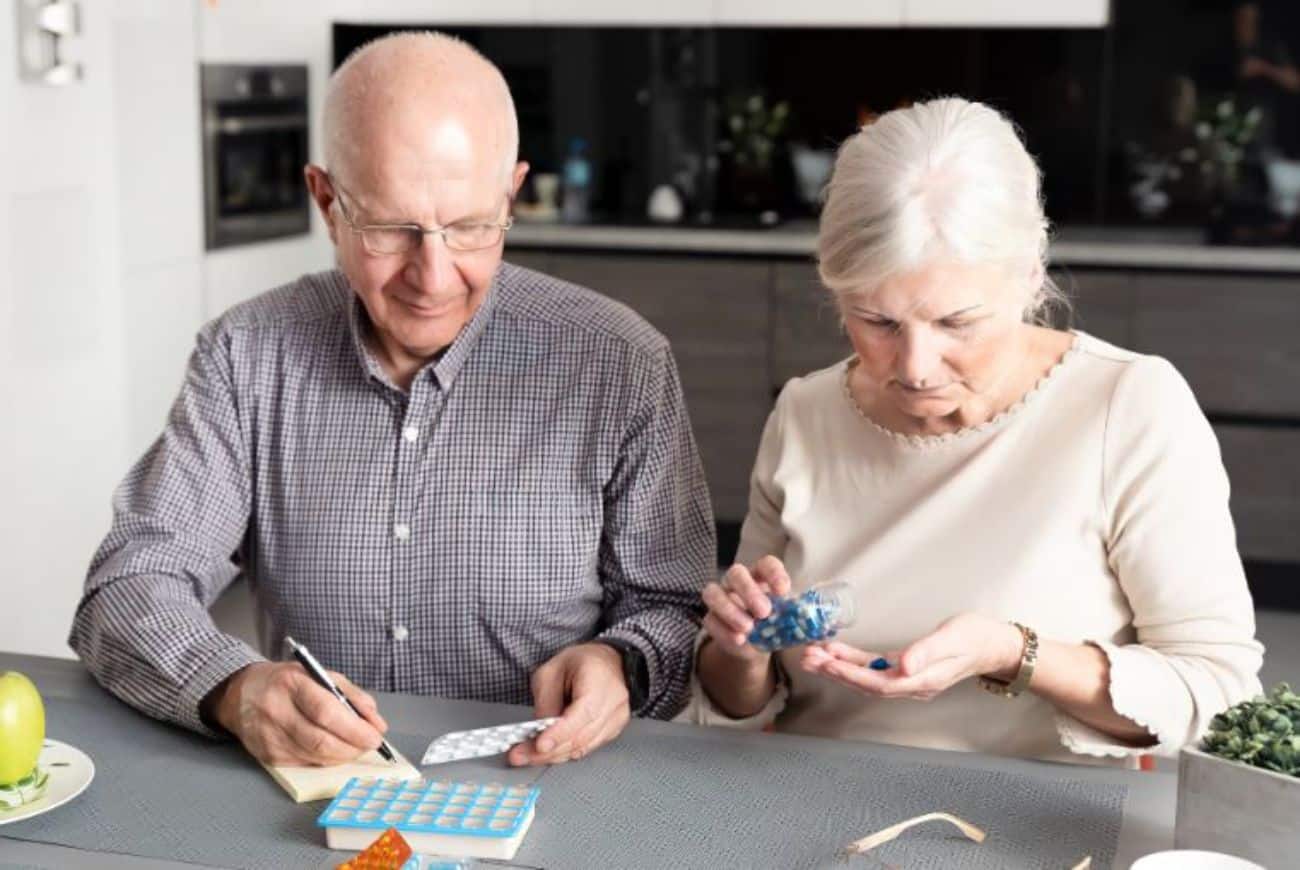With age comes new conditions and medications to treat them. In fact, studies show 87% of seniors take one prescription drug, 36% take five or more, and 38% use over-the-counter medications.
Managing a growing pile of prescriptions can be a big job, especially considering that missing doses or taking medicine incorrectly can be a major safety risk. Whether you’re personally responsible for your medications or a caregiver is helping you, it’s important to know how to properly manage prescriptions and other medications.
Make a detailed medication list.
Keeping a current list of all of your prescriptions, over-the-counter medications, and any vitamins or supplements you take is an important first step in medication safety for older adults. This list can serve as a critical resource if there’s an emergency and first responders have questions about what medications might be in your system. If you’re admitted to a hospital, your list will help doctors quickly determine what medications will need to be administered to maintain your health.
A complete medication list should include every medication of every kind that you take, including the dosage and frequency. If there are special notes, such as medications that should be taken with food, that should be included, too. If possible, you should also include the prescribing doctor, when you began taking the prescription or medication, and what condition it is intended to treat.
Keep a copy of your medication list where it can be easily seen by a first responder. Also ensure a family member or caregiver has a copy. You can also keep a reference copy where you keep medicine, such as in a plastic envelope attached to the inside of a cabinet door.
Be sure to update and print out new copies every time you have a change to medication, and include a date to indicate when the list was last updated.
Use a pill organizer.
A pill organizer can be an effective tool to encourage medication safety for older adults. Pill organizers come in many shapes and configurations, from a single box for each day of the week up to four or more boxes for each day.
Once a week, you should sit down with your current medication list and distribute pills according to the required dosages. This is a good time to cut any pills that need splitting, as well as removing pills from blister packs that may be difficult for arthritic fingers to handle.
Enlist help from family or a professional.
Sorting an entire week of medication can be an enormous task. If you find it’s more than you can (or want) to handle on your own, ask for help from a loved one or a skilled professional. Our medication administration program is one of the many services and amenities that assisted living residents like those at The Moorings at Lewes enjoy as part of their monthly fee. If you’re living independently at home, a private nursing service may be better suited for your needs.
Use tools to keep on track.
Because medication management is so important to a senior’s health and safety, there are many apps available to answer the problem of how to help the elderly remember medications. Common features include reminders to ensure you never forget a dose, refill notices so you don’t run out, and options to export or print your information to share with various members of your healthcare team. Some apps also allow you to involve a caregiver, so there’s an alert if you forget to take a prescription on time.
If an app isn’t practical, another idea for how to help the elderly remember medications is a paper chart where doses can be marked off as they’re taken. If you have trouble keeping on schedule, set alarms on your alarm clock or phone to remind you when it’s time to take your meds.
Store medications safely.
Another important aspect of medication safety for older adults is properly handling and storing medications when they’re not in use. Most prescriptions and medications should be stored in a dry, cool place. Avoid using a cabinet near the stove or in the bathroom, where humidity and moisture can be problematic. Lids should be securely tightened, and all pills should be out of reach of pets and children who may visit.
Also make a point, at least quarterly, to review all your medications and safely discard any that have passed their expiration date. Be sure to note anything that needs to be refilled, including over-the-counter medications that you regularly keep on hand to treat cold or allergy symptoms.
Consider a lifestyle change.
If you’re concerned about how to properly manage prescriptions and other medications, a move to a senior living community could be a lifestyle change that helps preserve your health and safety. Scheduling a visit will let you explore The Moorings at Lewes and our full continuum of care that means you can rest assured your future health needs will be met, no matter where life’s journey takes you.



